
views
India has been hit by a spate of corruption scandals that have embarrassed the ruling Congress party, stalled parliament for nearly three weeks and soured investor sentiments.
Here are details on four major scandals that have broken out recently:
Telecoms License Row
India may have lost up to $39 billion in revenue -- equivalent to the defence budget -- as the telecoms ministry gave out lucrative licences and radio spectrum in 2007/08 at below-market prices, the state auditor said in a report.
The Comptroller and Auditor General of India's (CAG) report last month also said several rules were flouted when the licences were given out which led to many ineligible firms getting licences.
While nobody has been charged, investigations have focused on the telecoms ministry, firms and lobbyists. Telecoms minister Andimuthu Raja was ordered by the government to resign after the report was released. Raja has denied any wrongdoing and has said he was only following existing rules and norms.
The top anti-corruption official's credentials have also been questioned by the Supreme Court, as he was the senior bureaucrat in the telecoms ministry before his elevation and has a separate corruption charge against him.
On Wednesday, the government told the court that Chief Vigilance Commissioner PJ Thomas would not oversee the investigations into the charges.
The scam has led to the opposition stalling parliament for nearly three weeks, demanding a joint parliamentary probe into the matter. The government has rejected the demand, saying separate investigations are underway.
The CBI is investigating allegations of corruption in the ministry and the government has said it is willing to have the Supreme Court monitor the investigation.
The CAG report says units of realtor Unitech were given licences despite not having adequate capital. The units are now part of the India operations of Norway's Telenor.
Swan Telecom, which has since been bought into by UAE's Etisalat, was given a licence despite being disqualified as No. 2 telecoms firm Reliance Communications owned more than 10 percent in it, the auditor said.
Reliance Communications was also given undue benefits as it sought permission to offer services under the more popular GSM technology, the auditor said.
All firms have denied wrongdoing and have said they complied with all rules when licences were given.
Authorities have questioned Nira Radia, a top lobbyist who represents companies like Tata and Reliance Industries, as part of an investigation into whether money laundering and forex laws were broken when the licences were purchased.
Prime Minister Manmohan Singh has been criticised for sitting on a request to grant permission to charge Raja with corruption, and been forced to answer questions from the Supreme Court.
Loan Bribery Scam
Top officials of Indian banks, lenders and financial firms have been accused of taking bribes to grant corporate loans. While the size of the scandal is not known, local media have reported it could run into millions of dollars.
The Central Bureau of Investigation (CBI), India's federal investigative agency, last week arrested eight people, including the chief executive of LIC Housing Finance and senior officials at state-run Central Bank of India, Punjab National Bank and Bank of India.
The bribes were allegedly paid by private finance firm Money Matters Financial Services, which acted as a "mediator and facilitator" for the loan beneficiaries, the CBI said.
Three Money Matters executives, including the managing director, have been arrested for offering bribes.
Several leading Indian firms were named in court documents filed by the CBI, including wind turbine maker Suzlon Energy, infrastructure company HCC's Lavasa unit and real estate firm DB Realty. All three have denied any wrongdoing. A CBI source has said the probe will widen to look if other banks were involved.
Finance Minister Pranab Mukherjee has asked investors not to panic over the case, following up on comments by other officials that this is a case of individual wrongdoing and not a widespread scam and that the banking sector will not be affected by it.
Commonwealth Games
The sporting extravaganza in October, which cost up to $6 billion, was dogged by several cases of alleged corruption, including the purchase of equipment and issuing contracts. The anti-corruption watchdog has identified more than 16 projects with possible irregularities.
The ruling Congress party sacked Suresh Kalmadi, chairman of the organising committee, as secretary of the Congress party's parliamentary wing. Three of his close aides have been arrested and local media has said Kalmadi too could be arrested.
The allegations include manipulations of tenders in the building of stadia and other games infrastructure, and inflating bills for equipment such as treadmills and toilet paper rolls.
Several bodies, including the anti-corruption watchdog, the state auditor, the CBI and a special committee set up by Prime Minister Singh, are probing the allegations. On Tuesday, the CBI raided the homes of the Games organising secretary and the Games committee offices, part of a probe into $21.7 million of misplaced funds.
Housing Scam
Congress party politicians, bureaucrats and military officials have been accused of taking over land meant to build apartments for war widows.
After the story broke in local media the government sacked the powerful chief minister of western Maharashtra state, who is a member of Congress.
The Arabian Sea-facing block with 103 apartments in an upscale Mumbai district, that among the world's most expensive pieces of real estate, is also being investigated for several violation of norms, including environmental laws and land-use rules.
Apartments were sold for as little as $130,000 each, while local media estimated their value at $1.8 million each.
Since the scandal broke, the government has effectively taken back permissions allowing owners to occupy the apartments, leading to the disconnection of water and power supply.
The CBI has begun investigating the case.










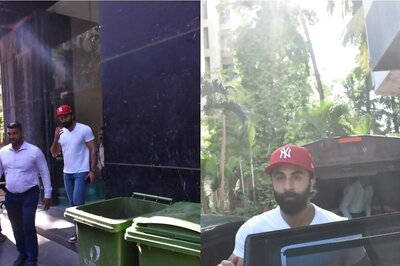
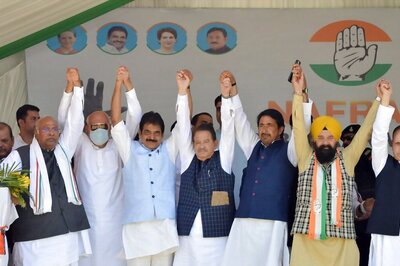


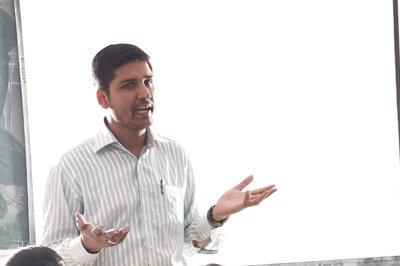
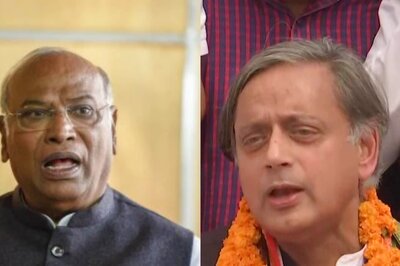


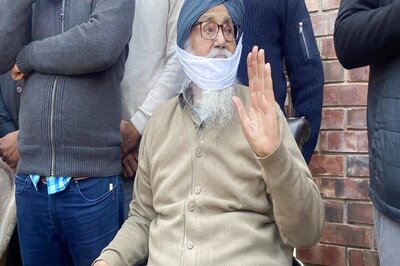

Comments
0 comment